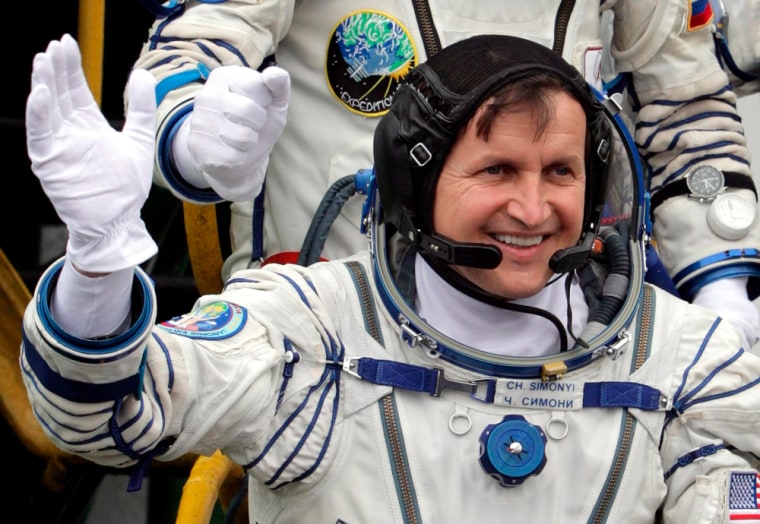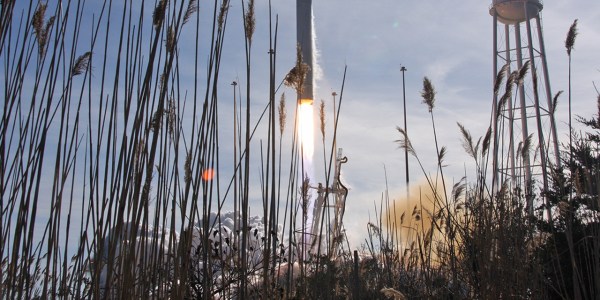Today's launch of a paying civilian into orbit may be the last one for some time.
The Russian rockets that have been carrying rich private citizens to space consistently since 2001, through deals brokered by the U.S. firm Space Adventures, may soon be booked up by professional astronauts.
NASA and its international partners are planning to boost the international space station from hosting crews of three to crews of six spaceflyers sometime this summer. The space population boom could mean that professional station astronauts will need every spare seat on the Russian Soyuz spacecrafts, as well as on the up to eight remaining space shuttle flights, that launch to the orbiting lab.
"It makes it more difficult to obtain flight opportunities on the missions that are scheduled to rotate crews," Space Adventures president Eric Anderson recently told SPACE.com.
American billionaire Charles Simonyi lifted off toward the space station this morning on a Russian rocket, after paying the Russian Federal Space Agency $35 million through Space Adventures. The trip is Simonyi's second — he previously flew to the ISS in 2007 — but could be the firm's last for a couple years.
"I'm actually optimistic, but it's too early to tell," Anderson said. "Even with a [space station] crew of six people it's conceivable that there might be a couple of seats for commercial purposes for 2010 or 2011."
However, NASA didn't sound so sure.
"Today the plan is to fly one more — it's not a tourist, it's a Kazakh-trained crewmember that's been with them for a while," NASA ISS program manager Mike Suffredini said earlier this month. "We'd consider him a crewmember actually, given his experience and the time he's been in training. That's to occur this fall, and we've been informed that will be the last, at least from a planning perspective, that is the last of the tourists to fly."
To be sure that some opportunities are left open in the future, the Vienna, Va.-based Space Adventures plans to book an entire future Soyuz flight for its clients. Russia's Soyuz spacecraft are three-person vehicles. During usual space tourist flights, one seat is filled by a paying customer, while the other two are filled by professional spaceflyers.
"The objective would be a tourist mission," Anderson said. "The mission would be paid for entirely by Space Adventures for the purposes of tourism."
This flight, which would be piloted by one professional astronaut and carry two paying passengers, would not occur until 2011 or 2012.
Slideshow 12 photos
Month in Space: January 2014
That reservation may come in especially handy when NASA retires its shuttle fleet in 2010, putting the burden of ferrying astronauts to and from the space station entirely on the Soyuz vehicles.
For Simonyi's part, the Hungarian-born software executive seems to have fit in his flight just under the wire.
"I'm extremely lucky that this particular balance of costs and benefits occurred where it was possible for a not ridiculous amount [of money] to participate and contribute," he told SPACE.com. "These ratios of costs will change, and in the near future I think the costs will increase quite a bit and the availability will go down."
Ultimately, though, Simonyi said the future of private space travel is bright.
"Look at Star Trek," he said. "When people watch Star Trek they don't think that this is impossible. They think it is absolutely natural, and even necessary. Obviously we're going to get there."

